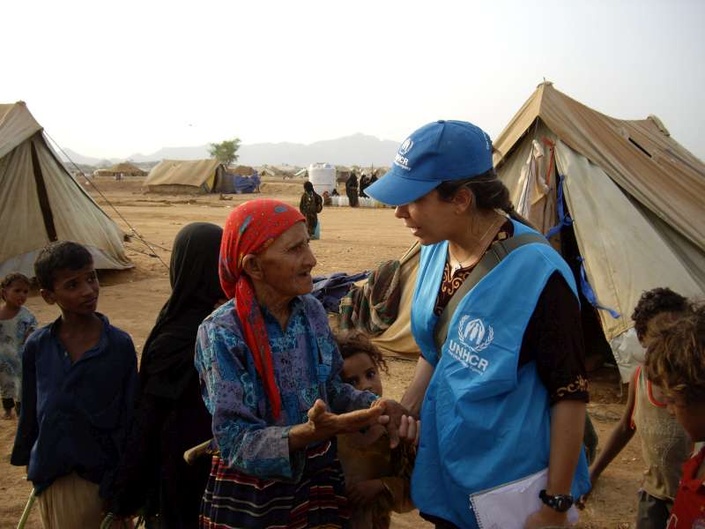
Reporting Skills and Professional Writing
Coached Online Learning Program: 14 January - 11 February 2025
JOIN NOWReporting Skills and Professional Writing
Effective reports are essential to any project Monitoring and Evaluation (M&E) system. They serve as a foundation for sound decision-making, promoting accountability, transparency, and learning within projects. A strong report does more than present data—it presents a narrative that captures the story of progress, highlights challenges, and shares lessons learned to inform future actions. Effective reporting is more than a routine task—it is a strategic tool that empowers projects to achieve greater impact and ensures their relevance in dynamic and evolving contexts.
Effective reporting:
- Supports Strategic Planning: Reports provide critical insights that guide decision-making, helping teams adapt strategies to changing circumstances and ensuring projects remain aligned with their objectives.
- Ensures Accountability: By documenting progress, challenges, and the use of resources, reports offer transparency to donors, stakeholders, and communities, building trust and credibility.
- Enhances Learning: Reports capture key lessons and insights that drive continuous improvement, helping teams identify what works, address gaps, and foster innovation for more effective future projects
Gain the expertise to:
- Set Reporting Objectives: Define clear reporting goals by understanding the reader’s expectations. Master the process of deconstructing report templates or terms of reference (TOR) to manage complex reports and coordinate team efforts effectively.
- Get to Grips with Data: Select the most effective data collection methods for your project M&E. Develop skills to uncover holistic insights and draw meaningful conclusions, revealing the compelling stories behind the numbers.
- Plan and Organize Your Writing: Use an innovative approach to writing that allows you to structure your work around clear objectives. Learn to plan, draft, and organize your ideas persuasively to maximize impact and engagement. Master techniques for clear communication that keep your readers interested and engaged.
Who Should Attend?
This training is for professionals working in relief, humanitarian, or development contexts who are responsible for collecting, analyzing, or reporting data. It is ideal for those seeking to streamline their reporting process, reduce stress from tight deadlines, and produce reports that are clear, impactful, and actionable.
Course Process
This course is designed to provide a practical learning experience, combining coached live sessions, self-paced study, and personalized post-training feedback to ensure actionable results. With a focus on real-world applications, the program supports you every step of the way, from learning essential tools to refining your skills. Here's what you can expect:
- Live sessions: Engage in five interactive weekly live online sessions (recorded for future reference). Led by expert instructor Neil Kendrick, these small-group live sessions provide a unique opportunity for real-time discussions, targeted coaching, and practical problem-solving—ensuring you can immediately apply what you’ve learned to real-world challenges.
- Flexible self-study: Access practical downloadable video presentations, transcripts, handouts, exercises, and tasks, allowing you to learn and apply skills at your own pace between live sessions.
- Knowledge checks: Assessments at the end of each module test your understanding, reinforce learning, and help you reflect on key concepts.
- Discussion spaces: Share insights, ask questions, and engage with other participants in discussion sections designed to enrich your learning experience and shape the focus of live sessions.
- Post-training personalized feedback: Submit an assignment to receive detailed, tailored feedback designed to help you refine your skills and apply what you’ve learned effectively.
- Certification of professional achievement: Upon successful completion, earn a certificate that recognizes your skills, dedication to learning, and commitment to professional excellence.
Meeting Schedule
Each Tuesday for 5 weeks, from 10:00 to 11:30 UTC.
Starts 14 January 2025.
You can check current UTC time here.
See the full curriculum below.
A maximum of 8 participants will be accepted for this training.
If you have any questions or would like to discuss whether this course is suitable for you or your team, feel free to email or chat with us.
COURSE CURRICULUM
-
StartGETTING STARTED: INTRODUCTIONS AND EXPECTATIONS
-
StartMEETING 1
-
StartRESOURCES
-
StartWHAT IS PROFESSIONAL WRITING? (5:55)
-
StartWHY DO SO MANY PEOPLE GET IT WRONG? (12:54)
-
StartWRITING TELLS OTHERS WHO WE ARE (14:03)
-
StartTHE WRITING PROCESS (7:50)
-
StartPROGRESS ASSESSMENT
-
StartDISCUSSION
-
StartRESOURCES
-
StartREPORTING SKILLS OBJECTIVES (1:53)
-
StartSETTING OBJECTIVES & PLANNING FOR DATA COLLECTION (5:34)
-
StartRESPONSIBILITIES OF THE REPORTER (1:31)
-
StartTHE FOUR LEVELS OF EVALUATION (8:05)
-
StartWORKING WITH TEMPLATES (2:48)
-
StartDECONSTRUCTING EVALUATIONS (12:42)
-
StartDECONSTRUCTING MONITORING REPORTS (4:34)
-
StartPROGRESS ASSESSMENT
-
StartDISCUSSION
-
StartMEETING 2
-
StartRESOURCES
-
StartMEASURING CLARITY: THE FOG INDEX (20:51)
-
StartTOOLS AND EXERCISES FOR IMPROVING CLARITY PART 1 (8:01)
-
StartTOOLS AND EXERCISES FOR IMPROVING CLARITY PART 2 (9:13)
-
StartTOOLS AND EXERCISES FOR IMPROVING CLARITY PART 3 (9:38)
-
StartWHAT WE'VE LEARNED SO FAR (1:33)
-
StartSOLUTIONS TO TASKS & EXERCISES
-
StartPROGRESS ASSESSMENT
-
StartDISCUSSION
Your Instructor
Leading ELD Training with over 25 years of experience, Neil Kendrick from the UK specializes in Professional Writing, Reporting Skills, Proposal Writing, Results-Based Management, and Monitoring & Evaluation. He has trained and coached humanitarian and development professionals from hundreds of organizations in over 20 countries across Asia, Africa, Europe, and the Americas.
How to Enroll
You can sign up immediately using secure credit card payment below. For individuals or organizations unable to pay by credit card or looking to enroll multiple participants, please contact us to discuss alternative payment options, including bank transfers or group enrollment packages..
Tiered Pricing
We understand that organizations in the humanitarian and development sector have different financial capabilities. To ensure accessibility, we offer a two-tiered pricing system based on your budget. Simply choose the pricing tier that best suits your organization's needs.
Both pricing tiers provide the same high-quality training—live meetings, lifetime access to resources, and personalized feedback—ensuring you receive full value regardless of the option you select. This approach allows us to maintain our commitment to quality while making the training accessible to those who need it most.